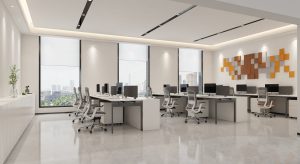In the Middle East, office design is more than just functionality — it’s a reflection of culture, hospitality, and business identity. Whether you’re furnishing a government building in Riyadh, a tech startup in Dubai, or a private office in Doha, selecting the right office furniture can greatly influence both employee productivity and client perception.
Here’s how to make the right choices when furnishing workspaces in the Middle Eastern market:
1. Respect for Space & Hierarchy
Many Middle Eastern workplaces have a strong sense of formality and hierarchy. That’s why:
- Executive desks and chairs should reflect authority — large dimensions, rich materials (like walnut or oak), and a refined aesthetic.
- Reception areas should feel welcoming and spacious, with soft seating and elegant finishes.
2. Blend Tradition with Modern Functionality
Incorporating cultural aesthetics is essential. This may include:
- Arabic-inspired wood patterns or metal latticework as accents.
- Warm, neutral tones (sand, cream, brown) that resonate with desert architecture.
- Curved furniture edges that feel softer and more inviting than sharp, industrial designs.
But don’t sacrifice technology — height-adjustable desks, cable management systems, and ergonomic chairs are still critical.
3. Consider Climate and Comfort
With high temperatures in many regions, it’s important to choose:
- Breathable fabrics and ventilated mesh chairs
- UV-resistant materials for furniture exposed to sunlight
- Smooth, cool surfaces like glass or treated wood for desktops
Comfort is not a luxury — it’s a necessity in Middle Eastern work environments.
4. Versatility for Meeting and Collaboration
Meeting styles in the Middle East often mix formal boardroom settings with more casual lounges for client hospitality.
Opt for:
- Modular conference tables
- Luxurious sofa seating in meeting corners
- Movable furniture to adapt to various types of interactions
5. Sustainable and Local Preferences
Middle Eastern buyers are increasingly interested in sustainability and supporting ethical sourcing.
- Highlight environmentally friendly materials
- Offer customizable finishes to suit local preferences
- Promote durability and long-term value, not just price
Final Thoughts: Furniture Is Part of the Brand
The way you furnish your office sends a message. In the Middle East, where visual identity and hospitality are highly valued, furniture becomes a strategic investment.
At Becy Furniture, we specialize in helping businesses across the Gulf and beyond select high-quality, culturally aligned office furniture that enhances workspaces and builds trust.
Follow us on Instagram and Facebook for more design ideas tailored to modern Middle Eastern offices.





